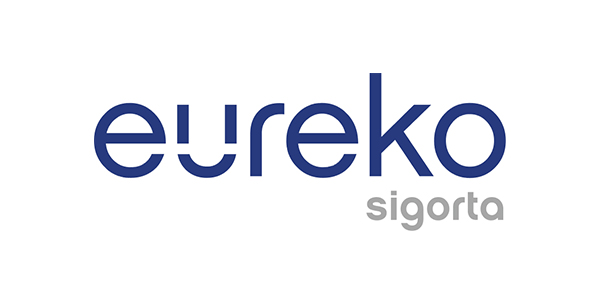CORPORATE LAW
Whether it is a family business or a multinational corporation, every successful enterprise rests on a foundation of clear rules and reliable structures. Corporate law, or Company Law, brings these crucial rules into action by regulating everything from company formation to daily management and shareholder rights. But what does this complex legal field really mean for entrepreneurs, investors, and employees? Understanding the principles and pitfalls of corporate law is essential not only for legal compliance but also for building trust and ensuring long-term stability in today’s fast-evolving market environment.
What is company law?
Company law encompasses the legal framework that governs the formation, operation, and dissolution of companies. It clearly defines the rights and obligations of shareholders, directors, and other stakeholders within corporate structures. By regulating processes such as mergers, acquisitions, and compliance with legal requirements, company law ensures that business entities are managed transparently, accountably, and efficiently. This branch of law aims to promote responsible corporate governance while creating a secure environment for commercial activities. As a result, both companies and individuals benefit from clear regulations that protect their interests and support sustainable business practices.
How many branches does corporate law have?
Within the framework of corporate law, a fundamental distinction is made between partnerships and capital companies. Partnerships are characterized by the personal liability of their partners, meaning that individuals are directly responsible for the company’s obligations. In contrast, capital companies limit the liability of their partners strictly to the amount of capital they have contributed, thus providing a higher degree of financial protection for the individuals involved. In addition, corporate law recognizes cooperative enterprises and companies with special legal status as separate categories, each with its own regulatory requirements and operational structures. This comprehensive classification allows different business models to operate under clear legal guidelines tailored to their specific needs and responsibilities.
How many types of companies are there?
There are various types of companies, including sole proprietorships, partnerships, limited liability companies, and joint-stock companies. Each primary corporate form differs significantly in terms of liability, management structure, and regulatory requirements. Choosing the appropriate type of company depends on key factors such as business size, capital requirements, and risk tolerance. National legal frameworks also play a crucial role, as they define the specific characteristics and obligations of each type of company. Understanding these distinctions is essential for entrepreneurs who aim to establish a business structure aligned with their operational goals and legal responsibilities.
What legal aspects should be considered in the process of establishing a company and in commercial operations?
In the process of establishing a company, it is essential to clearly define the legal structure of the business and to prepare a comprehensive articles of association fully compliant with the relevant commercial laws. Registration with the trade registry and obtaining all necessary permits and licenses from the very beginning are crucial steps to ensure lawful operations. Drafting written contracts that detail rights, obligations, and dispute resolution mechanisms helps minimize legal risks and uncertainties in commercial transactions. Continuous compliance with tax regulations, labor laws, and data protection requirements is vital not only to avoid penalties but also to ensure business continuity and safeguard the company’s reputation.
Which companies are required to have a lawyer?
According to Turkish law, certain companies, such as joint-stock companies and cooperatives above a specific capital threshold, are legally required to employ a contracted lawyer. Limited liability companies that exceed the designated capital limit must also retain legal counsel to ensure compliance with legal obligations. The mandatory employment of a company lawyer promotes corporate compliance by ensuring adherence to legal procedures, drafting and reviewing contracts, and effectively resolving disputes. Failure to employ the required company lawyer may result in administrative fines and other legal consequences stipulated under Turkish legislation. Therefore, retaining legal counsel is not only a legal obligation but also a critical measure to safeguard operational integrity and minimize legal risk.
Fundamental Principles of Corporate Law
The fundamental principles of corporate law define the legal framework within which companies are established, managed, and dissolved. Among these principles, the separation of legal personality, the limited liability of shareholders, and the delegation of management authority to corporate bodies stand out as key structural components. Transparent operations, accountability, and the protection of minority shareholders’ rights are deemed necessary to ensure fair and balanced corporate governance. Compliance with legal regulations and adherence to ethical standards not only support sustainable and lawful corporate activities but also foster long-term trust among stakeholders. Collectively, these fundamental principles help create a stable environment in which both companies and their stakeholders can operate with clarity and confidence.
Types of Commercial Enterprises within the Scope of Corporate Law
Within the scope of the Turkish Commercial Code, various types of commercial enterprises are defined, including sole proprietorships, partnerships, and companies. Each business structure is subject to different legal requirements regarding formation, management, and liability, which directly shape the operational environment. The choice of the appropriate business type significantly affects taxation, capital requirements, and shareholder responsibilities. A clear understanding of the differences between these commercial enterprise forms is essential for ensuring compliance with Turkish law and optimizing business efficiency. Entrepreneurs and investors, by recognizing these distinctions, become better equipped to establish companies aligned with both their strategic goals and legal obligations.
In summary, corporate law provides a comprehensive legal framework that ensures companies operate within clear, regulated boundaries while protecting the rights and responsibilities of all stakeholders. The law defines different types of companies and their obligations, helping entrepreneurs and business owners choose structures that align with their strategic and operational needs. Adhering to legal requirements, from company formation to ongoing compliance and the mandatory employment of legal advisors, protects businesses from legal risks and supports long-term operational continuity. Consequently, a solid understanding of the principles of corporate law and the provisions of the Turkish Commercial Code is essential to maintain transparency, accountability, and trust in corporate activities, empowering both companies and their stakeholders to thrive within a stable legal environment.
Reliable Legal Solutions, Professional Support.
Why Choose Us?
Uzman Hukuk Ekibi: Alanında uzmanlaşmış avukatlarımız, müvekkillerimize geniş bir hukuki perspektiften danışmanlık hizmeti sunar.
Çözüm Odaklı Yaklaşım: Hukuki zorluklara çözüm odaklı yaklaşarak, etkili ve sürdürülebilir çözümler üretiriz.
Müvekkil Memnuniyeti: Müvekkillerimizin memnuniyeti ve ihtiyaçları bizim için önceliklidir. Her durumda müvekkillerimize özel çözümler sunarız.













“Şirketinizin hukuki konulardaki güvencesi olmak ve başarıya giden yolda size rehberlik etmek için Narin & Partners olarak buradayız. Güçlü bir iş ortağı ile çalışmak ve iş dünyasındaki hukuki zorlukları aşmak için bizimle iletişime geçin.”